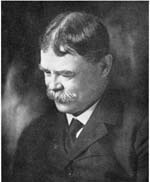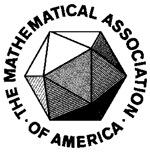

The 2008 William Lowell Putnam Exam is scheduled for Saturday, December 6, 2008.
If you are interested in taking the exam, email Michael Filaseta for more information and to get your name on the list.
The Putnam Exam is a nationally administered mathematics exam for undergraduates in the United States and Canada. It has been administered every year starting in 1938.
The exam consists of 12 problems, six in the morning session (9:00 AM - 12:00PM) and six in the afternoon session (2:00PM – 5:00PM). Both sessions last three hours.
Each problem is worth 10 points, but the graders generally give limited partial credit. The median score is usualy about 0 or 2. So there is no disgrace in not solving any of the problems, but there is the potential for glory in case you do.
Each school chooses, in advance, three students to comprise the school’s team. The total of those three students determines the school’s national rank.
At the university of South Carolina, we base the selcetion of the team members upon several factors inlcuding the performance on previous Putnam Exams and the score on the Virginia Tech Mathematics Exam given each October. You are strongly encouraged to take the Virginia Tech Exam. It is a tough exam, but much less demanding than the Putnam.
The results of the exam will be available sometime in April 2009; included in this report is a list of the top scoring 500 participants. About 4000 students participate in the exam each year.
The participants will be treated to lunch during the break between the sessions. This is a chance to meet some of your fellow students and to discuss the problems from the morning session.
Typically, the scores on the Putnam Exam are low; it is, after all, a difficult exam. But it is fun too and if you like the challenge of trying to solve hard problems, then you will enjoy it. However, there are typically a couple of problems on each section that do not require that you have taken any advanced classes.
The Putnam Exam Home Page.
Eligibility Requirements
The competition is open only to regularly enrolled undergraduates, in colleges and universities of the United States and Canada, who have not yet received a college degree. No individual may participate in the competition more than four times. An eligible entrant who is also a high school student must be informed of this four time limit.
